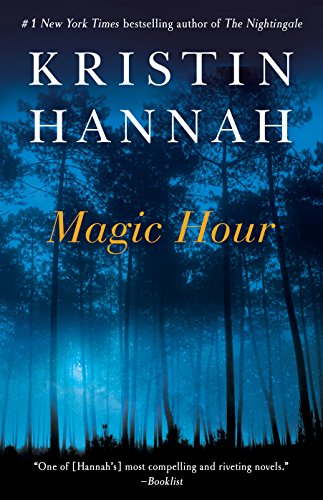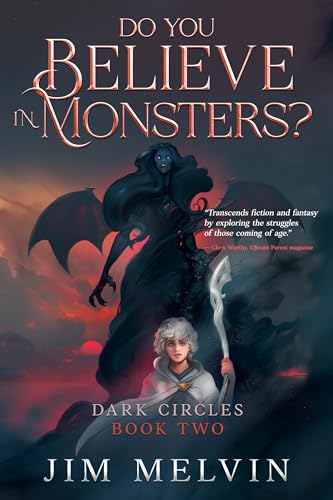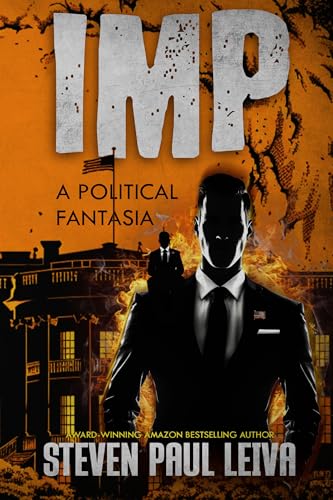“Suzanne Tyrpak weaves a spell that utterly enchants and delights. Her writing is pure magic.”
–Tess Gerritsen, New York Times bestselling author
Vestal Virgins, Roman Gods, Early Christians. They all play their role as Elissa seeks revenge on Nero and struggles with her passions….
And Suzanne Tyrpak provides us with a generous 11,000-word excerpt to bring ancient Rome to life in all its rich wonderful and terrible glory….
Here’s the set-up:
Elissa Rubria Honoria is a Vestal Virgin–priestess of the sacred flame, a visionary, and one of the most powerful women in Rome. Vestals are sacrosanct, sworn to chastity on penalty of death, but the emperor, Nero, holds himself above the law. He pursues Elissa, engaging her in a deadly game of wits and sexuality. Or is Elissa really the pursuer? She stumbles on dark secrets. No longer trusting Roman gods, she follows a new god, Jesus of Nazareth, jeopardizing her life and the future of The Roman Empire. (From the “Tales from the Adytum” collection.)
Please note: Due to the setting and the times, the book includes several scenes involving “deviant” sex — suggestive rather than graphic — and not more than a few paragraphs.
What the Reviewers Say
“A writer of real talent, a promising new voice.”
–Terry Brooks, New York Times bestselling author
“The author has given us a diverse cast with each one being well rounded and written to perfection. The story is rich with history and will hold the reader’s attention to the end.”
–Socrates’ Book Reviews
“With a fluid writing style, Suzanne Tyrpak has created a gripping tale that immerses you in another time and culture. From the very beginning, I was pulled into the storyline.” –Mother Lode Book Reviews
“There is a tension throughout that is well worth savoring, a sort of dread that fills the reader as things start to go wrong.”
–Alice Y. Yeh, Stimulated Outlet Book Reviews
Scroll down to begin reading the free excerpt
by Suzanne Tyrpak
Adytum
List Price: $2.99
And here’s another great read for the Kindle
by Suzanne Tyrpak — for just 99 cents!
9 short stories about dating, divorce, desperation — all that good stuff. Joe Konrath gave it 5 stars and says, “Pure Comedic Brilliance.”
An Excerpt from
VESTAL VIRGIN
Suspense in Ancient Rome
By Suzanne Tyrpak
Copyright © 2011 by Suzanne Tyrpak and published here with her permission
PART I
The Silent Dead
I give you tears, and words of sorrow at our parting,
but this ground cares not for my salt, the dead remain silent.
Fate stole you, took you from me, heart and soul,
beloved brother, dead, long before you grew old,
these rituals I perform, were passed down from our ancestors,
I weep for you, the dead, for tears are my inheritance.
–Catullus
Chapter I
The Kalends of October
Year IX,reign of Nero Claudius Caesar Augustus Germanicus
…though they may condemn me, the words I write are heartfelt. I no longer trust Nero, no longer trust the gods. I don’t fear death, but life. This life devoid of passion. My fate has never been my own — my destiny decided ten years ago when I was pledged to thirty years of chastity. Keep this letter close, for I trust only you.
Elissa
She set down the stylus and read what she’d written. Could a person be condemned merely for thinking?
Through the narrow window of her chamber, a breeze brought the scent of roses, the last of autumn. Soon it would be winter, but sequestered within the House of Vestals the world seemed seasonless.
“Elissa — ” a voice called from beyond the doorway’s curtain.
She snatched the papyrus, thrust it into the bodice of her stola, and turned
on her stool. Angerona, her fellow priestess, swept open the curtain. Unfettered by her veil, her auburn tresses fell over her shoulders in a wild cascade of curls. Beside her, Elissa felt small and dark. She ran her tongue over her teeth, the tip lingering on her deformity.
“I’ve been looking for you everywhere.” Angerona’s face was flushed, which only made her prettier. She sounded breathless, “I thought I’d find you working in the garden then I checked the library — “
“Why aren’t you at the agora?” Elissa wiped ink from the stylus, replaced it in the jar with others, hoping Angerona wouldn’t ask what she’d been writing. “All you’ve talked about for days is that gold bracelet. I thought you’d be haggling with the merchant. Did you finally get your price?”
“So you haven’t heard — ” Angerona’s voice trailed off.
“Heard what?”
“All of Rome is whispering. I thought, by now, you would have known.” She touched Elissa’s shoulder, and something in her touch made Elissa shiver. “Your brother has been charged with treason.”
“Treason?” The word passed Elissa’s lips, but didn’t register.
“They say, Marcus has been plotting Nero’s assassination. They say — “
“They say!” Elissa stood, toppling her stool. “You’ve been listening to idle gossip, and now you’re spreading rumors.”
“My source is reliable.”
“Who?”
Angerona shook her head.
Elissa seldom raised her voice, but now she did, “Gossip will be your ruin, Angerona. Vicious lies.”
Angerona looked close to tears. She reached into the folds of her stola and withdrew a scroll. “This came for you by messenger.”
Hands trembling, Elissa broke the imperial seal, read aloud:
“I, NERO CLAUDIUS AUGUSTUS GERMANICUS,
PRINCEPS OF THE ROMAN EMPIRE,
BELOVED OF APOLLO,
SUMMON THE VESTAL VIRGIN,
PRIESTESS ELISSA RUBRIA HONORIA,
TO WITNESS HER BROTHER’S DEATH — “
Her mouth went dry. The gods had acted swiftly, punishing her hubris. “There must be a mistake,” she said. “A Roman citizen, the son of a senator, can’t be treated like a common criminal.”
“I’m sorry,” Angerona said, tears spilling from her eyes.
“First your father, now my brother — Nero holds himself above the law.” Elissa took a breath and willed her heart to beat more slowly. “I’ve got to hurry.”
“You’re going to the circus?”
“The emperor requests my presence. Perhaps Nero’s forgotten how my family has supported him.”
“You can’t go unescorted — “
“No?”
“Let’s speak to the Vestal Maxima,” Angerona said, “request she file a petition and ask your brother’s life be spared. Even Nero can’t refuse a vestal’s intervention on behalf of a prisoner — ”
“There’s no time. Marcus fights at noon.”
“I’ll call for the coach — “
“I’ll walk. It’s faster.”
“At least, change your robe. Your hem is stained from pulling weeds.”
“I don’t want to be recognized.”
Angerona thrust white slippers at Elissa. “Your shoes.”
“Yes.” Elissa slid them on her feet, barely noticed. She had to get to Nero soon, and with no pompous retinue. Digging through her cedar chest, she found her oldest palla. She flung the shawl over her head and wrapped it around her shoulders.
“You look like a beggar,” Angerona said.
“Good. No one will notice me.”
Elissa ripped open the doorway’s curtain. The cubicles where the six virgins slept stood empty, the inhabitants occupied elsewhere with their work — invoking blessings for the sick, copying documents, tending the sacred fire. She glanced at the closed door of the Vestal Maxima’s private chambers. At this hour Mother Amelia would be busy contracting wills and legal documents, conferring with dignitaries from the farthest reaches of the empire, downstairs in the library.
Angerona followed at Elissa’s heels. “At least take a lictor.”
“No bodyguard. I don’t want to be recognized.”
“You must follow protocol — ”
Lifting her soiled hem, Elissa hurried down the marble stairway. Sun poured through the open ceiling of the atrium, dancing on the central pool. Serving women, carrying baskets heaped with linen, made their way along the pillared hallway and out into the courtyard where vats of water boiled. Laundry day kept the household busy — and made it easy to escape.
She opened a side door, which lead out to the street.
Angerona stepped in front of her. “You can’t go to the Circus Maximus alone — “
“Come with me.”
Elissa and Angerona faced each other, their breath mingling, their thoughts transparent. Torn from their families at an early age, bound by vows, they were closer than blood sisters.
Angerona had lost her glow. Her tear-streaked face looked pale as leaden powder. Of course she wouldn’t come. For all her bluster and emotion, she possessed a strong instinct for self-preservation. And to confront Nero bordered on insanity.
Elissa brushed a damp curl away from Angerona’s forehead. “Don’t worry, sweet. Nero loved my brother once. I’ll remind him, and you know I can be convincing.”
“What shall I tell the Vestal Maxima?”
“Tell her what you want.” Elissa’s laugh sounded hollow. “Tell her I’ve accepted Nero’s invitation.”
She left Angerona gaping and walked briskly toward the forum.
CHAPTER II
On the far side of Palatine Hill, a mile from the House of Vestals, the urban mob squirmed on stone benches at the Circus Maximus. The chariot races had ended and clouds of grit settled on the arena, coating the spectators. Women poured out of the gates leaving men to watch the afternoon’s more gruesome entertainment.
Horns squealed and a water organ moaned, announcing the procession of gladiators.
The Retiarii carried tridents and nets; Thracians, square shields and swords; Secutors, oval shields and daggers. Schooled in combat, massive in their builds, gladiators stood a chance for victory. A chance to live.
Not so for Marcus. He would face wild beasts unarmed. A death more shameful than crucifixion.
Beneath the spectator stalls, he waited to be summoned. Grasping the wooden bars, he stared out of his cage and recalled the fate of a prisoner of war from Germania. Destined to fight the lions, the captured soldier had gone to the latrines — a stinking row of holes in a long bench — and, using the stick meant for wiping away excrement, he rammed the salty sponge into his throat.
Beasts or suicide. The only choice.
Out in the amphitheater the crowd stamped their feet, shaking Marcus to his bones. He prayed he wouldn’t shit himself.
Wooden tiers towered over the arena and held more than 150,000 people. As noon approached, the spectators devoured goat cheese and barley bread, apples and pickled eggs — while they waited for dessert.
“Answer when you hear your name,” the lanista shouted.
Taskmaster of gladiators, the lanista filled his purse by treating men like animals. Society did not respect him, although his barrel of a stomach proved he ate lavishly.
“Marcus Rubrius Honoratus.”
“Present.”
Marcus slid his hands along the wooden bars, splinters prickling his palms. His back was broad from wrestling, his arms knotted with muscle from lifting lead weights in the gymnasium, but he was no gladiator. His thoughts turned to Socrates. Soon he’d have the chance to test that great philosopher’s theory of immortality, to learn firsthand if his soul would perish or cross into the Plain of Oblivion and continue to the River of Forgetfulness.
The lanista unlocked the cage. Tugging Marcus by a leash, he dragged him into the torch-lit hallway and ordered him to kneel. Squaring his shoulders, Marcus reminded himself of the dignity with which Socrates had faced his execution.
“I said, kneel.” The lanista cracked his whip, and two brutes forced Marcus to his knees amid steaming camel dung. “Rome has no tolerance for treason.”
“Or truth.”
The barbed whip scored welts across his back.
Marcus clenched his teeth, refusing to register the pain, searching his mind for words of wisdom. That which destroys and corrupts is evil,Socrates had said.That which preserves and benefits is good.
Above him, in the amphitheater, the crowd roared for blood.
The sun crept toward noon.
Elissa climbed the road leading from the forum, the soles of her leather slippers slick against the flagstones. Although the temperature was cool and left no doubt that it was autumn, a rivulet of sweat ran down her face. She pushed onward, glancing at the seven hills as she reached the pinnacle. A patchwork of terra-cotta rooftops gave way to parkland girded by six miles of gray tufa blocks. Beyond the Servian wall, golden fields and olive groves offered the promise of freedom. A false promise, Elissa thought — all Romans were slave to Nero.
“Jupiter,” she said, tears choking her voice, “Ruler of the heavens, protector of the empire, I beg you to spare my brother’s life.”
She swiped her eyes, angry with herself for showing weakness. Ten years ago, when she had been wrenched out of her childhood, she’d sworn all her tears were spent. Ten years ago, when she had been nine, a golden coach drawn by four white geldings had arrived at her parents’ house. They’d hoisted her into the coach. One doll, her comb and hairbrush — no other belongings.
The Vestal Maxima sat in the coach. Her voice floated from beneath snowy veils, “Are you frightened, child?”
Trembling, tears streaming down her face, Elissa shook her head. Through the coach’s window, she saw her parents. Her new position was an honor. She would be rich and powerful, but her parents’ faces appeared solemn as if witnessing a funeral.
The wheels of the coach squeaked, began to roll.
Elissa craned her neck in order to keep her brother in her sight. He ran alongside the coach, yelling, “Bring her back!”
“Marcus!” she called out to him, until her throat was raw.
“Drive on,” the Vestal Maxima ordered the coachman. “The sooner we depart, the sooner she’ll forget.”
But Elissa never forgot that day, never forgot crying out to Marcus as he disappeared within a cloud of dust.
Redoubling her pace, she hurried toward the Circus Maximus.
Marcus was no traitor. The idea was preposterous. He had loved Nero, only too well. His fault had been to question the princeps, attempting to steer him away from disaster. Hopes had been high for Nero when at age seventeen he’d come into power. Initially, advisors kept him on an even keel, but now Burris was dead, Seneca banished, Agrippina murdered, and Nero charted his own course.
If only I had prayed more, Elissa thought, perhaps the gods would have protected Marcus. She wondered if her hubris had led to her brother’s plight, her questioning of the gods’ power — the damning words she’d written. She reached into her stola, seeking the letter, words she must destroy before they wreaked more havoc. As her fingers touched the papyrus, two boys raced around a corner, forcing her into the gutter and a stream of putrid water.
“Look out,” one of the boys shouted, without pausing to offer help.
“I hear music.” The other motioned for his friend to hurry. “The procession is starting.”
They bolted down the hill toward the Circus Maximus.
Stumbling from the flow of waste, Elissa followed. Her slippers, soaked and no longer white, slapped the paving stones.
Down by the river, the air felt humid, smelled of fish. She saw the boys far ahead, skipping, laughing, as if going to a carnival. Gathering her robes, she clomped along the riverbank, sinking in the mud.
The fish market, usually a hub of excitement with boats docking to unload their catch and fishmongers arguing with customers, stood empty. Screeching gulls swooped over abandoned tables.
It seemed as if all of Rome were at the Circus.
Elissa sought a shortcut through an alleyway, wide enough to accommodate only one donkey. A baker had thrown fermenting bran into the gutter where pigs now feasted. A woman, a toddler secured on her hip, stepped onto an overhanging balcony. The boards groaned, threatening to collapse. Hoisting a bucket over the railing, the woman dumped out slops, and the pigs groveled happily in the rain of excrement. The stench stung Elissa’s nostrils, burned her eyes. Regretting her decision not to come by coach, she hurried on.
A donkey-cart laden with earthen tiles clattered around the corner, forcing her against a fire-blackened wall. During daylight hours the only carts permitted on Rome’s streets were those bearing construction materials — nothing would deter Nero’s voracious building plans. The cart rattled through the gutter, splashing filth.
“Watch where you’re going,” Elissa wanted to shout but, accustomed to the hushed confines of the House of Vestals, her voice came out as a whisper.
She wiped something sticky from her eye.
Spattered with mire, she might have been a common prostitute. She continued past a fire-gutted tenement. Once painted brilliant yellow, the plaster walls were charred and stained with soot. Amidst scrawling graffiti, a poster announced:
GLADIATOR GAMES TODAY
Gathering her skirts, Elissa ran.
The lanista’s kick left Marcus gasping.
Blood trickled down his back, the result of the barbed whip. Marcus gritted his teeth, refusing to acknowledge that he suffered, refusing to give Nero that satisfaction. He felt certain his former friend was watching. Even now he felt Nero’s gaze.
They had grown up together, raced horses, caroused in taverns, bedded women…known each other. Anguish of the body was nothing compared to Nero’s treachery.
The lanista’s thugs grabbed Marcus, jerking him onto his feet, forcing him to stand in a small two-wheeled wagon. They tied a plaster mask over his face, bound his back against a plank, fettered his arms and ankles with iron chains.
His legs felt weak, but Marcus steeled himself.
“Still some fight in him.” The lanista belched fumes of garlic. “The lions are sure to find the traitor appetizing.”
Traitor.
The word stung Marcus more than barbs.
He was guilty, yes, of loving Nero too much. Guilty of trusting him. He’d committed the crime of speaking bluntly, the crime of speaking truth without anticipation of retaliation. What a fool! Was he a traitor to propose a return to the Republic? A traitor to suggest the government reestablish democracy? A hundred years had passed since Julius Caesar had been proclaimed dictator for life, decreed a god — since that time democracy had become a forgotten concept, and the rights of Roman citizens had dwindled.
The wagon rolled through a tunnel that ran beneath the spectator stalls. Spine pinned to the plank and unable to turn his head, Marcus stared through the mask’s eyes at his future — the little that remained of it. The wagon hit a rock and the wheels vacillated. A jolt of pain shot through his back. The cart rolled past cage after cage of angry beasts and growling men.
A fellow prisoner begged for mercy, others called his name. The crack of a whip drew an agonizing scream.
The cart bumped around a corner, and sunlight poured through an archway.
Drums rolled and the water organ blared as jugglers and acrobats led the procession into the amphitheater. The archway grew wider, taller, allowing Marcus to see into the arena. The crowd’s roar echoed through the tunnel, pounding in his ears.
Acrobats were followed by minor fighters: errant slaves, captured fugitives, young men and even women anxious to prove themselves worthy opponents. Marcus wished he might be one of them. They, at least, carried weapons. They engaged in sport and would die with glory. But he, armed only with a length of rope, would face a half-starved lion.
The crowd’s shouting made thinking impossible. It grew in intensity, filling up the tunnel, drowning all other sound, flooding Marcus like a tidal wave as the gladiators entered the arena. Not long ago he would have led their cheers, rising to his feet, climbing onto his bench, shouting slogans as confetti showered the arena. Gladiators were heroes, heroes to whom Nero awarded palaces and treasure — men who had faced death and survived. They rivaled gods.
The cart moved forward into the arena’s blinding light.
Last in the procession were the criminals. Something hard hit Marcus in the chest and exploded with the stink of sulfur. That rotten egg was followed by fish heads, apples, anything the crowd could hurl. His wagon paraded around the arena, wheels sinking in the sand. Where were the philosophers? The artists and intellectuals? Through squinting eyes Marcus peered from his mask, and saw only a bloodthirsty mob. Had justice and democracy become foreign concepts?
The procession came to a halt before the imperial box, a tiny jewel of a palace overlooking the arena. Marcus scanned the balcony, but saw no sign of Nero. The princeps preferred to watch the games, unobserved, from within his private chambers. Through a peephole. How many times had they sat side-by-side, the best of friends, watching together?
“Show yourself,” Marcus shouted.
But Nero was too cowardly to face his former lover.
Crimson pennants gashed the sky, announcing the festivities at the Circus Maximus. Elissa held her palla over her nose to stem the stench of the latrines — although, after her tramp through the slums, she didn’t smell much better.
Outside the arena, merchants hawked their pickled fish and sacks of olives, figurines of gods and goddesses, colored flags for spectators to wave in support of their favorite chariot team. Marcus favored the greens. Elissa elbowed her way through the crowd, unused to the press of humanity, the heat of bodies, the stink of the mob as people shoved and pulled.
An old woman, a figurine of Venus clutched against her concave chest, smacked into her. From beneath her tattered palla, rheumy eyes peered into Elissa’s.
“Rome burns,” the woman said, clawing at Elissa’s hand, “and from union unholy the sister will bring forth a son.”
“Thief!” A merchant stormed from his stall.
Before he could stop the old woman, she slipped into the crowd.
The merchant shook his fist and cursed.
“Let an old woman have her Venus,” Elissa said, attempting to calm him.
Reaching beneath her palla, she found her money pouch and came up with a silver denarius — ten times the statue’s worth.
The merchant pocketed the coin, eyeing Elissa with suspicion.
She hurried toward the amphitheater. Weaving through the crowd, she thought of the old woman — her deranged eyes, her mutterings. Somehow she seemed familiar. At last, Elissa reached the entryway at the far end of the oblong arena opposite the starting gates.
“No women allowed.” A guard blocked her entry.
Shifting her palla, Elissa revealed her medallion inscribed with the insignia of Vesta. Unlike other women, vestal virgins were privileged to watch the gladiators and had a designated box just below the emperor’s. The guard studied her medallion, glanced at her ragged clothing. Before he could object, she dropped a coin into his palm.
The procession of gladiators had finished, and the arena had been cleared. Workers set the stage for a wild beast hunt — dragging potted palms onto the sand, erecting backdrops of painted jungle scenes on the central spina. Cages carrying lions, bears, and strange striped cats, rolled through the archways. A trench, ten feet wide, ten feet deep, and filled with stagnant water, separated Elissa from the spectacle. Flies buzzed above the moat, indifferent to the scummy water. Midway along the tiers of benches, Elissa spotted her destination: the imperial box.
Her step faltered.
Facing Nero might not be the wisest of decisions, especially without protection. To secure the throne he had poisoned his half-brother, murdered his mother. What would stop him from harming her? Seeking clemency for Marcus might only whet his appetite for cruelty. But within the arena, lions stalked the blood-soaked sand, reminding Elissa why she’d come.
Wooden steps descended to a torch-lit corridor beneath the spectator stalls. Young toughs huddled in the tunnel, inscribing fresh graffiti on the walls, jeering at Elissa as she passed. She hurried through the corridor. Even October’s chill could not suppress the smell of unwashed bodies, stale wine and urine. She emerged from the tunnel blinking at the sun amid thousands of people.
“I place my money on Marcus,” she heard someone say.
“I’ll wager on the lion.”
Two grubby men sat on a stone bench in a nearby stall. The uglier winked at her.
She hurried toward the imperial box.
Praetorian Guards in dress uniform stood at the foot of a marble stairway, breastplates gleaming over short red tunics, heads crowned with tufted helmets.
A gangly guard, a member of Nero’s private army, stood in Elissa’s path. Peering
up at him, she said, “Don’t you recognize me, Celsus?”
She knew the guard from prior visits, and she had invoked blessings for his family, casting spells for his sick child. But today, dressed in rough cloth instead of white robes, Celsus failed to recognize her.
“How is your little boy?” she asked. “Has Crispus fully recovered from the fever?”
“Priestess Elissa Rubria.” The guard’s face flushed, and he bowed with the reverence due a vestal. “Please, forgive me. Crispus is much improved. I thank you for your prayers. Of course you may pass.”
Elissa hurried up the steps, aware that running was improper for a vestal virgin, but there was no time for propriety.
She glanced around the balcony, hoping to see Nero.
Esteemed guests of the princeps sat on ivory curule chairs, their bottoms resting in curved seats, preparing to watch the games in shaded comfort from under a midnight-blue canopy embroidered with silver stars. Tables, laden with bowls of purple grapes and figs, platters of all kinds of breads and ripened cheeses, ran along the perimeter. The scent of spiced meat, cooking on an open flame, wafted toward Elissa. Guests sipped wine from gilded chalices, while flute-girls played. A concubine wandered toward Elissa, trailing silk and jasmine perfume.
“Have you seen Nero?” Elissa asked.
The concubine smiled, eyes dreamy with opium, and nodded toward Ofonius Tigellinus.
Nero’s constant watchdog looked up from his plate of food as Elissa approached. He sat by the stairway which led down to the imperial chambers. The horsehair crest of his helmet, dyed red as blood, and his scarlet toga, denoted his position as Prefect of the Praetorian Guard, Nero’s personal assassin. Though weapons weren’t allowed in Rome, Elissa knew within his robes Tigellinus carried a dagger.
“Elissa Rubria Honoria,” he said, a sausage poised at his teeth. “What brings you here?”
As if he didn’t know.
“Where can I find Nero?”
“I haven’t seen you at the Circus since the Ludi Romani.” Tigellinus bit into the sausage, squirting fat.
The Ludi Romani.Fifteen days of brutal games culminating in near riot when Nero showered the stalls with rubies and pearls, laughing as spectators crushed each other in their scramble for the gems.
“The princeps sent for me,” she said.
“Hungry?” Tigellinus wolfed another bite.
“Tell me where he is.”
Using the battered knuckles of his hand, a hand that had killed scores of men, Tigellinus wiped grease from his mouth. A purplish scar cut through his upper lip and gave him the appearance of a snarling dog. He glanced toward a narrow stairway that led down to Nero’s private quarters.
“He’s busy.”
The concubine giggled.
Tigellinus stuffed the remainder of the sausage into his mouth.
Attempting to calm her voice, Elissa said, “The princeps requested my presence. Would you defy his wishes?”
Tigellinus shot her an angry glance, threw his plate against a wall and clambered down the steps.
Elissa gazed back at the arena, wondering how much time she had before the games commenced.
The sound of heavy footsteps announced the return of Tigellinus.
“The princeps will see you shortly — ”
Pushing past him, Elissa hurried down the stairway. She found herself in a small, circular hall. No guests. No guards. Nero’s private sanctuary. An oil lamp smoldered on a granite table. Carved doors surrounded her, closed and heavy. One door stood ajar. Nero’s laugh boomed out from it, ricocheted around the walls.
Chapter III
Gallus Justinus had no intention of accepting Nero’s invitation to attend the games. As a soldier in Britannia, he’d had his fill of war and had lost his taste for violence. Lost his taste for Nero’s atrocities. With every passing year his childhood friend grew more perverse.
Within the courtyard of his domus, Justinus examined his apple trees. He breathed in the aroma of ripened fruit, sweet and heavy, the scent of encroaching winter. Shorter days. Long, lonely nights.
“A visitor has come,” Akeem announced.
The slave stood, shivering, in the doorway leading to the house. He peered
into the courtyard, unwilling to step outside. Akeem came from the warmer clime of Alexandria and bore the haughtiness of an Egyptian prince.
“Master, come inside,” he said, his Latin immaculate. “Attending to horticulture is no fitting pastime for a hero — ”
“I think these trees have mites.” Bending a branch, Justinus searched the leaves. “I see their evidence.”
“Those gardeners don’t do their job. I will summon them again.”
“Who’s my visitor, Akeem?”
“That troublemaker, Lucan, back from Greece. The one who calls himself a poet. I will send him on his way.”
“Too late!” Lucan’s thunderous voice was followed by a boom of laughter. His frame filled the doorway. Before Akeem could stop him, he barreled through the threshold. Three strides brought him halfway across the courtyard. With a grip worthy of a bear, he clasped Justinus. “Dear friend, how are you?”
“Better, now that you’ve turned up.”
“Like weighted dice, you can count on me.”
The poet’s laughter was infectious.
The two men clamped each other in a hug, and for the first time since his return from Britannia, Justinus felt at home.
“Have you grown taller?” he asked as he broke away from Lucan. Justinus wasn’t short by any measure, but he felt dwarfed beside the poet.
“Maybe broader.” Lucan patted his stomach. “Greek wine acts as fertilizer. Golden piss they call it, but its taste never slowed my drinking.”
Akeem sniffed.
“When it came to women,” Lucan said, “I found Athens dry. No wonder the Greeks favor boys.” He winked at Akeem, and the slave left in a huff. “They let their women wither on the vine, keep them locked away like vestal virgins.”
Justinus turned away from Lucan, forcing himself to think of other topics. He ran his hand over the trunk of a tree and wondered if the soil might benefit from ground fish bones. “It’s a good year for apples,” he said. “Despite a few mites, the crop has been abundant.”
“You still have feelings for her, don’t you?”
“Feelings?”
“For Elissa.”
Justinus gazed through the branches at the cool October sun. Past noon. And what had he accomplished? Today or in his life? Not much. Death and destruction was his trade. And what use was a warrior who despised violence? The one person he trusted, the one person who truly understood him was Elissa.
“I have feelings. Yes.”
A breeze rustled the apples trees. Justinus kicked at a fallen leaf.
“How long have you been back in Rome?” Lucan asked.
“Six months.”
“How fares the Druid Queen?”
“Boudicca died three years ago in battle. As fierce a warrior as any man I’ve ever
fought. I can still see her, driving her chariot, red hair streaming to her knees, as she led blue-faced men, shrieking women, even children into war. ‘Justice,’ she called out as she faced her death. ‘My people fight for justice.'”
“As should all of us,” Lucan said. “These days Rome is short of justice.”
“Nero takes too much pleasure in the role of king.”
“The role of tyrant, you mean.”
The two friends stood side-by-side, watching leaves swirl to the ground. A nightingale trilled its melancholy song, long past mating season.
“I feel old,” Justinus said.
“Don’t be absurd, we’re twenty-four and in our prime.”
“I couldn’t stop my men. It was a blood-bath, not a battle.” In his mind’s-eye Justinus still heard the battle cries, still smelled the stench of death. “When the Britons advanced, our infantry charged. So did the cavalry. Our lances spared no lives. No women. No children. Not even animals.”
“Another glorious victory for Rome,” Lucan said.
“I wish I could take back that day — “
“Time heals, they say.”
“Does it?”
Lucan laughed.
“According to Horace,” Justinus said, “the perfect meal begins with eggs and ends with apples. Green or red?”
“Who am I to disagree with that illustrious poet? I’ll take red.”
“My father planted these trees years ago.”
Each tree stood twenty paces from the other and lined the courtyard’s perimeter. Now they formed a canopy of green tinged with yellow. Justinus reached for a branch laden with fruit, winced when the old war wound twitched his back.
Lucan had no need to stretch. With ease, he plucked two apples and handed one to Justinus.
“Forget her.”
“I can’t.”
“Find another girl. Marry. Raise a family.”
Justinus rubbed his thumb over the apple. Smooth skinned without blemish. Perfect. The result of his devotion. In theory, Lucan spoke the truth. But how could he forget Elissa? She was honest, pure, and infinitely good. No other woman met her measure. Only work that had some meaning might drive her from his mind, his heart. But these past months he’d found little in Rome to occupy an Equestrian, a knight of the empire. He had no use for politics. Since the fall of the Republic the senate served only as a mouthpiece. And he wanted no part of Nero’s tyranny.
“What will you do, now that you’re back?” he asked Lucan.
“Nero has appointed me quaestor.”
“A great honor for one our age.”
“He wants me close, so he can keep his fingers in the treasury.”
“Not as close as your uncle, Seneca, I hope.”
“I plan to keep my distance,” Lucan said. “Nero has the habit of killing off his intimates. What of you, Justinus? Will you seek a civil appointment? Overseer of the Roads? Master of the Aqueducts?”
“My father left me extensive properties — apartment buildings, store fronts, farmland beyond the city walls — without tremendous effort, I live quite comfortably. But if I had my choice I’d be tilling fields.”
Justinus bit into his apple.
“A man needs something to believe in,” Lucan said.
Justinus took another bite and chewed. “I’ve met a philosopher named Paul. He
speaks of a kinder world, a world ruled by compassion.”
“What world is that?”
“Paul says a man’s soul is his greatest possession, that a single soul holds more value than a treasury of gold. He follows The Way of Jesus of Nazareth.”
“Jesus of Nazareth!” Lucan spat chunks of apple. “Don’t tell me you’ve taken up with wayward Jews.”
Akeem appeared at the entryway.
“Another visitor,” he said. “Someone important.” He glanced at Lucan, his dark eyes flashing with disdain. “A vestal virgin.”
“Which one?” Justinus asked, his heart quickening.
“Priestess Angerona. She requests to see you — privately.”















